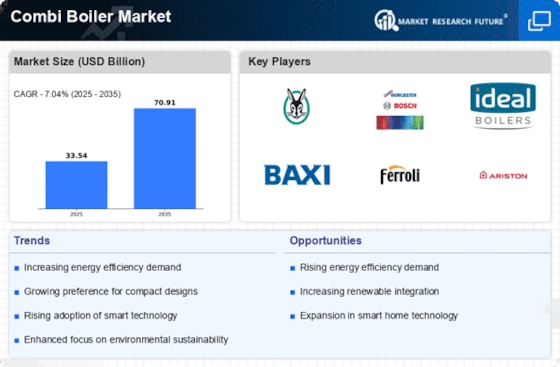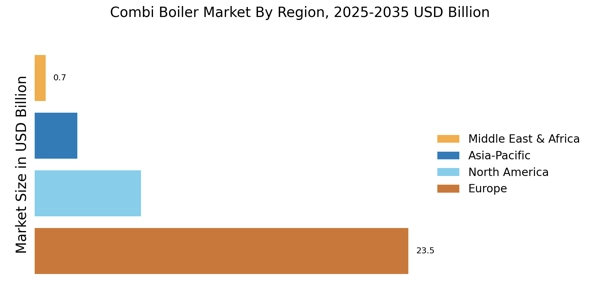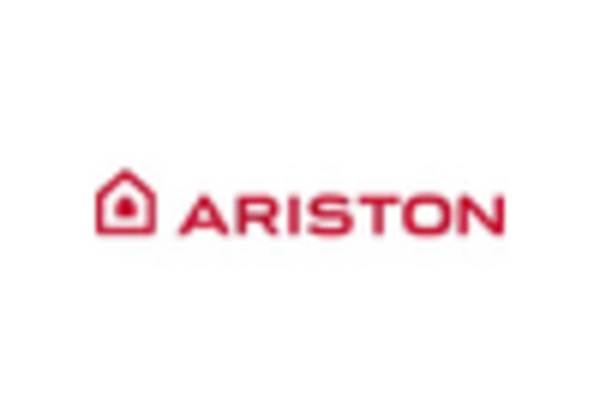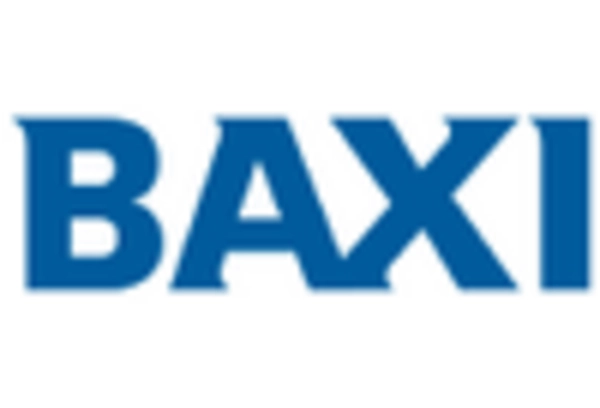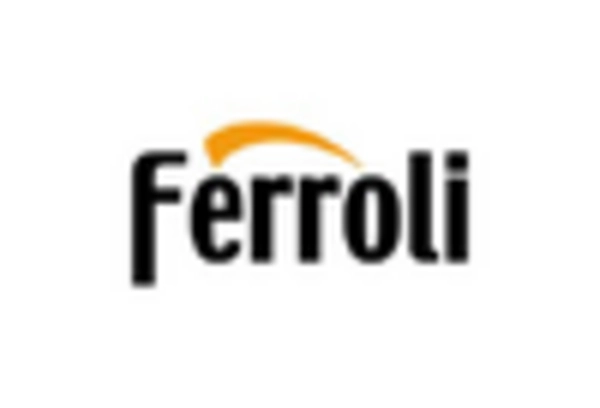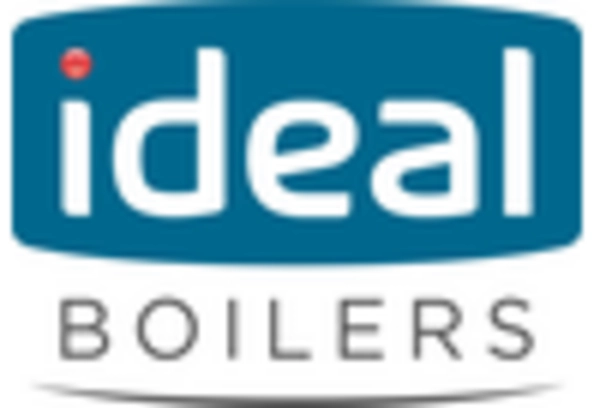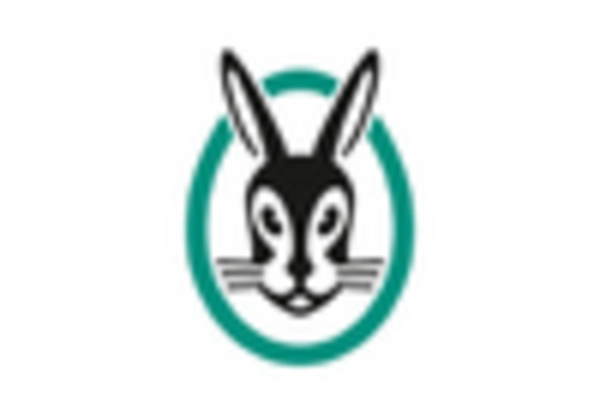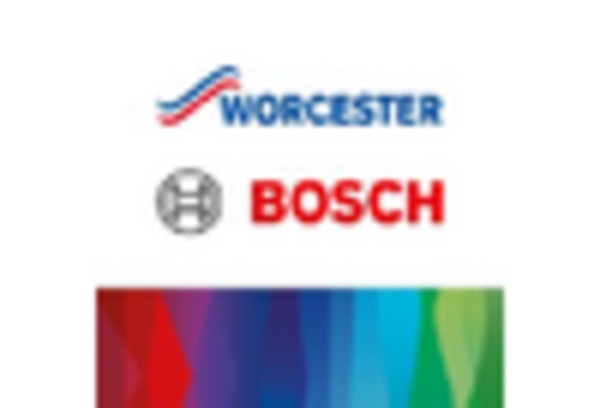Rising Energy Efficiency Standards
The Combi Boiler Market is experiencing a notable shift due to increasing energy efficiency standards imposed by regulatory bodies. These standards aim to reduce energy consumption and greenhouse gas emissions, compelling manufacturers to innovate and enhance the efficiency of their products. As a result, the demand for high-efficiency combi boilers is on the rise, with many models achieving efficiency ratings above 90%. This trend not only aligns with environmental goals but also offers consumers potential savings on energy bills, thereby driving market growth. The emphasis on energy efficiency is likely to continue influencing purchasing decisions, as consumers become more aware of the long-term benefits associated with energy-efficient heating solutions.
Increased Focus on Renewable Energy Sources
The Combi Boiler Market is witnessing a shift towards renewable energy sources, driven by both consumer demand and regulatory incentives. As governments promote the use of renewable energy to combat climate change, there is a growing interest in hybrid systems that combine traditional combi boilers with renewable technologies such as solar thermal or heat pumps. This trend not only enhances the sustainability of heating solutions but also offers consumers the potential for reduced energy costs. Market data indicates that the adoption of hybrid heating systems is projected to grow by 25% in the coming years, reflecting a significant shift in consumer preferences towards environmentally friendly options.
Technological Advancements in Boiler Design
Technological advancements are playing a pivotal role in shaping the Combi Boiler Market. Innovations such as smart thermostats, remote monitoring, and advanced heat exchangers are enhancing the functionality and efficiency of combi boilers. These technologies allow for better energy management and user control, which are increasingly important to consumers. Market analysis suggests that the integration of smart technology into heating systems could lead to a 20% increase in market penetration over the next five years. As manufacturers continue to invest in research and development, the introduction of more sophisticated and user-friendly combi boilers is expected to drive further growth in the industry.
Rising Construction and Renovation Activities
The Combi Boiler Market is benefiting from a surge in construction and renovation activities across various regions. As new residential and commercial buildings are constructed, there is an increasing demand for efficient heating solutions, including combi boilers. Additionally, homeowners undertaking renovations are often opting to replace outdated heating systems with modern combi boilers that offer improved efficiency and convenience. Recent statistics show that the construction sector has expanded by 10% in the last year, contributing to the rising demand for combi boilers. This trend is expected to persist, as ongoing urban development and infrastructure projects continue to drive the need for advanced heating solutions.
Consumer Preference for Space-Saving Solutions
In the Combi Boiler Market, there is a growing consumer preference for space-saving heating solutions. Combi boilers, which combine heating and hot water functions in a single unit, are particularly appealing to homeowners with limited space. This trend is especially pronounced in urban areas where living spaces are often compact. The convenience of having a dual-function appliance not only maximizes space but also simplifies installation and maintenance. Market data indicates that the demand for combi boilers has surged, with sales increasing by approximately 15% over the past year. This shift in consumer preference is likely to continue, as more individuals seek efficient and compact heating solutions that cater to modern living conditions.


